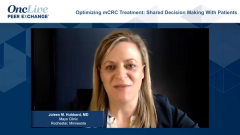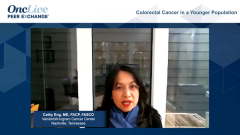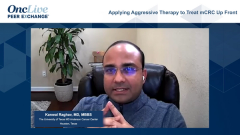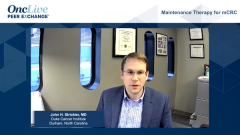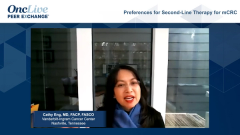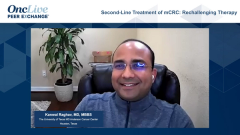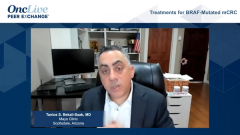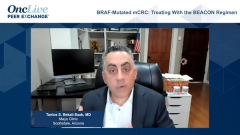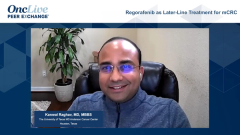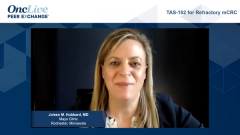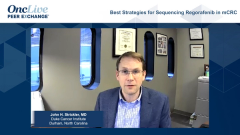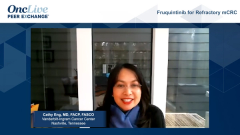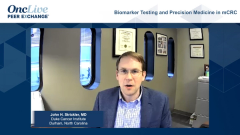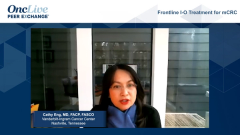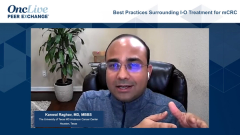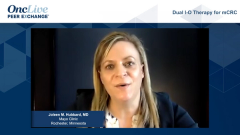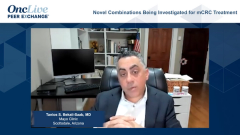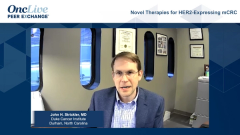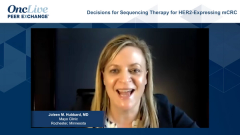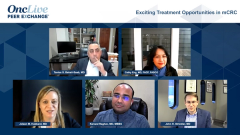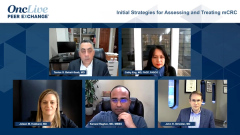
BRAF-Mutated mCRC: Treating With the BEACON Regimen
Gastrointestinal oncologists consider when it is most appropriate to initiate the BEACON trial regimen of encorafenib-binimetinib-cetuximab as treatment for BRAF-mutated metastatic colorectal cancer.
Episodes in this series

Tanios S. Bekaii-Saab, MD: One thing about the BEACON CRC trial is that the patients when they looked at the second line vs the third line, those in the second line seemed to have done better than those who received it in the third line. Arguing for moving it even further up the line of therapy, there was a study of anchor presented at ASCO GI [American Society of Clinical Oncology Genitourinary Cancers Symposium] with the first line. It was triplet, though: encorafenib, binimetinib, cetuximab. Cathy, do you want to touch on that study very quickly and why it’s exciting?
Cathy Eng, MD: FACP, FASCO: There was interest from the BEACON trial for looking at the triplet combination for BRAF because there was a sense that their response was going to be higher. With the triplet, for BEACON it was 26%. But when they looked at it in a single-arm phase 2 study, at least of the first 40 patients who participated, proportionally the survival and treatment for the BRAF patients were a bit disappointing. It was just as good as the BEACON trial, which was a little over 4 months.
The response rate was about 50. But for the PFS [progression-free survival], I was expecting a bit more mileage from newly diagnosed patients. That’s where we were a little disappointed. Obviously, that’s only part of the readout. That was the first phase of the 100 patients they enrolled. We’ll see the final results eventually, but the initial results were a bit disappointing.
Tanios S. Bekaii-Saab, MD: At the end of 1 of the slides, it mentioned that because of COVID-19, the data have not been correct enough. Whenever in doubt, you blame COVID-19 in 2020.
Kanwal Raghav, MD, MBBS: With this BRAF single arm, if you look at the safety run-in for BEACON, the outcomes were just as phenomenal. Looking at those outcomes, you never would have imagined the effect size would be this in a randomized setting. If you look at 1 of the original studies that was done, the cetuximab, irinotecan, and vemurafenib—not the SWOG study but the original phase 1 study that was done—that also showed a response rate of almost 40%. This doesn’t seem to be recapitulated. I wonder if there is a patient selection in the single-arm BRAF trials that’s ongoing and levels out when it comes to randomized trials. But many trust in data nonetheless.
Tanios S. Bekaii-Saab, MD: The rule of the thumb is whenever you get to phase 2, and in a highly select phase 2, divide by 2, and you’ll have the actual response. That’s it. It’s always going to be true.
Transcript Edited for Clarity


